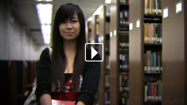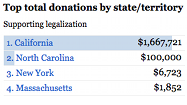Teacher responses to the 2010 release
The following is a list of teacher responses to their "value-added" ratings during the intial release in 2010. See the most recent responses »
The Times gave LAUSD elementary school teachers rated in this database the opportunity to preview their value-added evaluations and publicly respond. Some issues raised by teachers may be addressed in the FAQ. Teachers who have not commented may do so by contacting The Times.
|
|
 Delicious
Delicious
|
 Digg
Digg
|
 Facebook
Facebook
|
 Twitter
Twitter
|





Hello to all who are interested,
You might be looking at this because I'm your child's new teacher. I hope you find some relief in what you see. I put everything I have into what I do. I love teaching. I knew I wanted to be a teacher since I was five and can't imagine doing anything else.
Given that, I don't like that parents see these value-added scores. I know that some of my colleagues don't get the marks that I do. Instead of alienating them, like these scores do, I like to help them and work with them to see all of our students succeed. Knowing these scores is fine, but sending it out to the parents is another thing.
Now, if I had a child I would want to know the scores of my child's teacher. Who wouldn't? But, I think a better route would be to support the teacher so that they can spend their time giving your child the best education possible. Secondly, I would make sure my child understands all of their homework and help them in any way I can. Finally, I would use my time and efforts to make sure I raise the most well-rounded child. A child should know the arts and get physical activity every day. These are things that I, as a teacher, have put to the side more than I want to because I know the importance of the California Standards Test. Personally, I don't want to do that as a teacher, but the CST is the focus. These teachers with less effective scores may have spent more of their time making their students well-rounded. I honestly don't know.
Over the years, I have done many extra hours of teaching with my students. Some hours were paid and some were not since my school would sometimes have the money to pay me for these extra hours. Most of the time we were told what we would be teaching during these after-school/Saturday hours. Most of the time it was only English. Only this past year was I allowed to pick what I wanted to focus on, so I chose math. This may explain the difference in my effectiveness in teaching English vs. math. In the unpaid hours, students were allowed to stay after school and get help in anything they needed which was usually math.
As my personal life changes, my extra hours of teaching may also change which will probably lower my effectiveness. I hope it doesn't, but I won't be sure until that happens.
As I stand now, I put everything into my teaching. Most students succeed because of it but some don't. I've been fortunate to be at 4th grade for five years in a row. I really got to know the standards and the test. As I move to third grade this year, I'll be diving into those standards and making my teaching just as effective, if not more, than what it has always been.
Take these value-added scores, and any others you see, with a grain of salt. Remember, it takes a village to raise a child. We all must do our part.
August 20, 2010 at 5:24 p.m.
This is interesting. I just calculated the most recent CST scores and my average scores went up by 34%. 92% of my students showed growth of over 10 points. 21/28 students moved up by at least 1 level. Some students moved up several levels. At the beginning of the year I had 7 students in FBB and BB levels. At the end of the year I only had 1 student score BB. This analysis may average overall performance for a five year period but it doesn't not take into effect many other valid factors. For example, several years ago I had a group of 30 4th grade students. Of the 30, 6 were severe behavior problems. One had been pulled from another class and put into mine. I had spent majority of the time dealing with discipline and making sure these students didn't physically harm each other. Naturally this impacted everyone else's learning. Now I am the same teacher with the same teaching strategies, yet my scores differed dramatically between those two years.
Now, I'm not opposed to transparency in education. In fact, I think it's necessary to ensure that our students have the best instructors in the classroom. Yet this blanket assessment does not paint the entire picture.
August 20, 2010 at 4:54 p.m.
1. I am unclear whether this rating only looks at moving levels of proficiency or whether it actually looks at numbers. For example, is moving a child from basic (345) to proficient (351), by answering one additional question correct on the test, of greater value or less value than moving a child from the beginning of basic(301) to high basic(345)?
2. This evaluation fails to evaluate whether a teacher is developing higher level thinking skills or "teaching to the test".
3. On a personal note, the best class I had several students from a "poor" teacher based on the low test scores. However, they knew how to process information and I was able to create connections to pre-existing knowlege to reach mastery.
4. In my experience, the most importance predictors of success are the seriousness with which a student and/or the family places on the completion of (home)work, whether they read, and how much background knowlege needs to be provided to access the standards.
5. I do not feel that this information should be necessarily be made public, based on #3. However, I do personally feel that it is appropriate as part of the review process by the principal and/or district, where the teacher has the opportunity to explain any mitigating circumstances or reference subsequent growth by the students.
August 20, 2010 at 4:15 p.m.
Well this is definitely an eye-opener. I have come to learn when you have students with very low skills when they come to me any improvement individually is what I am looking at. I can make the student read the material and the difference between the test from third to fourth is the biggest jump I have ever seen. So the fact I am less effective is something because after reading your article I got the impression I was at the bottom of the barrel.
August 20, 2010 at 3:07 p.m.
Again, this is not accurate....I was a Literacy Coach at Serrania elementary....This information for scoring involves my first year back in the classroom after almost 6 years of literacy coaching...my scores have risen since that first year back after six...my scores do not help your position, nor are they a good measure of my worth...I am a good, and getting even better-teacher!
August 20, 2010 at 2:07 p.m.
It is unfortunate that there is not a formula that measures the human factor- meaning the warmth, affection, and care that I have for each and everyone of my students, as well as for their parents. Or a formula that measures how much confidence I instilled in each one of them, or a formula that measures how much I inspired someone to not take a wrong turn in life, or a formula that measures the amount of time and energy I spend making each student feel safe, or a formula that measures how much my students appreciate my hard worPr
August 20, 2010 at 2:06 p.m.
What this indicator takes into account is if a student scored well in a test given once a year and not if the child learned new topics. This does not show my dedication to my profession. This does not show if I even attemped to go above and beyond. This doesn't show if I had struggling students not just academically but emotionally. Please before you pass judgement, walk in my shoes and lets see the type of effort your willing to give.
What's not included in this "Wonderful" finding is my willingness to take my students on varying field trips, camping, and provide guidance in place of or in conjuction with parents. I' m a profesional and stand dedicated to what I do.
August 20, 2010 at 12:40 p.m.
I had been teaching almost exclusively the primary grades (K-2) until around 2004 when I was bumped by a senior teacher out of my second grade position up to 3rd. The following year I was asked to move to fourth by the principal, so I complied. It has been a big learning curve for me to learn the curriculum in these new grades. I have been aware of the need for improvement, especially in math. Last year I worked hard at improving both reading comprehension and math. I checked my 2010 CST scores and was very pleased with my students' performance. Please check them out. I wish this reflection process could be carried out in a more respectful and friendly manner. Thank you.
August 20, 2010 at 12:29 p.m.
While my rating is very positive, I am so disheartened that the LA Times has chosen to publish this information. I have taught at this school since 1996 (not 2004)at all different grade levels. 4th grade was a new curriculum for me, while the students were also in a new math program. Class sizes were increased and more than half of my class was identified gifted, thus narrowing the margin of growth.
Teachers have always been given this data and use it to drive instruction. We meet within grade levels and discuss programs and methods to improve scores and enhance the curriculum. Standardized tests should only be used for this purpose, not to judge the effectiveness of a teacher.
I know that I'm effective when my students become responsible for their own learning, are interested and motivated to learn more, and develop skills to become successful, productive citizens. I am effective when students learn to use critical thinking and higher level reasoning to solve problems. I am effective when students learn to work together in a group, treat others fairly, and can work to solve their own conflicts.
Other than English and math for one standardized test, the elementary teacher is responsible for science, social studies, art, music, composition, health, physical education, library & resource skills, computer skills, hand writing,organization, social skills, work and study habits, building self confidence and discipline.
Education involves the whole child. It is much more meaningful to experience, a student's excitement and discussion about reading than to read their scores for a multiple choice test. Listening to class discussions where they originate new ideas, reading their creative writing, sharing their interests in the arts, and observing their scientific skills is also much more meaningful.
The following is information from the National website Fairtest.org
"No test is good enough to serve as the sole or primary basis for important educational decisions. Teaching to the test also narrows the curriculum, forcing teachers and students to concentrate on memorization of isolated facts, instead of developing fundamental and higher order abilities. Tests that measure as little and as poorly as multiple-choice tests cannot provide genuine accountability. Pressure to teach to the test distorts and narrows education. Instead of being accountable to parents, community, teachers and students, schools become "accountable" to a completely unregulated testing industry.
Better methods of evaluating student needs and progress already exist. Good observational checklists used by trained teachers are more helpful than any test. Assessment based on student performance on real learning tasks is more useful and accurate for measuring achievement - and provides more information - than multiple-choice achievement tests.
The U.S. is the only economically advanced nation to rely heavily on multiple-choice tests. Other nations use performance-based assessment where students are evaluated on the basis of real work such as essays, projects and activities. Ironically, because these nations do not focus on teaching to multiple-choice tests, they even score higher than U.S. students on those kinds of tests."
I refuse to "teach to the test", because I care about the education of my students. By publishing this information, the LA Times will contribute to the downfall and current misunderstanding of these standardized tests and their importance to evaluations of teachers. Standardized tests do not add value.
August 20, 2010 at 12:23 p.m.
Of course, any reflective professional must agree in principal with the concept of accountability; however, when it comes to education, that same reflective professional must recognize that accountability and how teacher effectiveness is assessed is a complex issue that should not be unfairly oversimplified. As a member of a highly collaborative learning community that routinely analyzes data to help drive instruction, I am not surprised by the rating reflected here. I am, and have always been aware of student performance on standardized testing and have used that information to inform and modify instructional practices in classrooms that invariably include a diverse population with a significant variety of needs, as is reflected in our various significant subgroups. And this is too why as a school we chose to focus on such areas as differentiating instruction and depth and complexity.
And too, there is no denying that Language Arts and Math are the cornerstones of education, and yet, if one is to "hold teachers accountable," one must understand that teachers frequently contribute to the overall learning environment in ways that may not be reflected in the test scores of the single classroom. In my case, I can give several examples. For instance, as Micheltorena's Science Lead Teacher, I help build teacher capacity in teaching science through professional developments that impact students school-wide. As chairperson of our School Site Council, I help facilitate a body that makes critical decisions regarding our funding and how to best utilize it for maximum impact on student achievement. And then there are the other responsibilities I have elected to take upon myself because I believe they provide many students, not necessarily just those in my classroom, with opportunities they might not otherwise have. I established and coordinated the relationship between Micheltorena and BookPals to help promote literacy and an appreciation of reading among students. And I also began recruiting students to submit articles to a local newspaper in order to give our school a voice in the community. And finally, as for "my" students, I know from what former students have later told me, they learned from me lessons about life and how to be a successful member of society that they may not have garnered from mere readin', ritin', and 'rithmatic.
Because I am serious about what I do, I will continue to look at the data, reflect on my teaching practice, and avail myself of the many opportunities for professional growth that will help me build my capacity. But in all honesty, I dread the day when perhaps my income may be adversely affected because teacher accountability will be based on an unfairly limited set of criteria.
August 20, 2010 at 10:29 a.m.